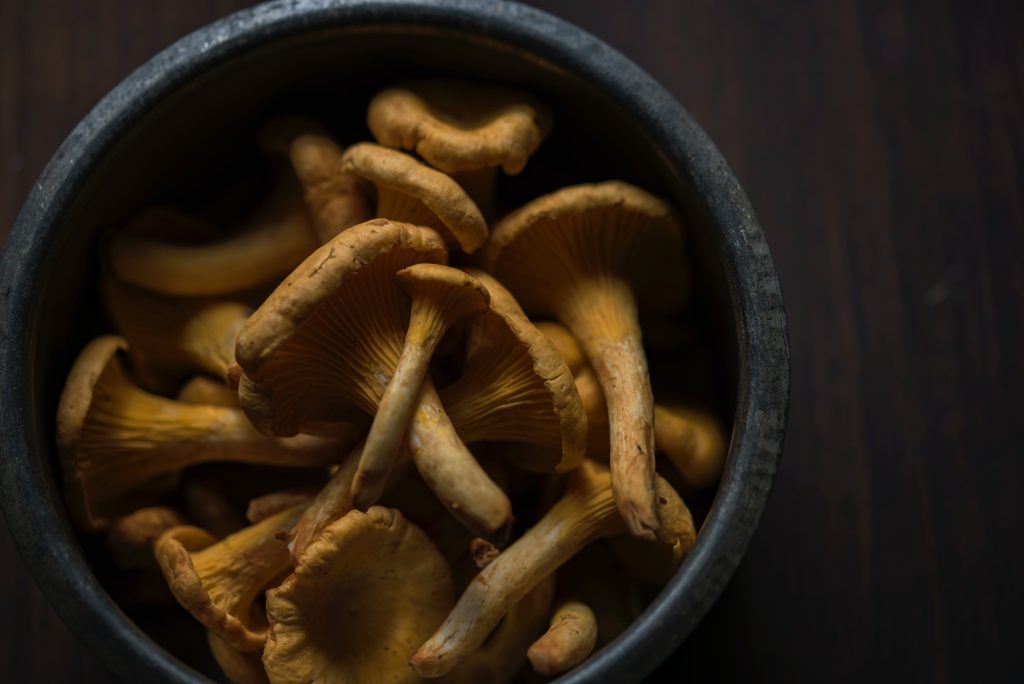Future-proof your alternative protein business with our top 10 insights from food industry leaders
The world is witnessing a shift in the way people view and consume meat and dairy products. The rise of alternative protein is no longer a trend but a fundamental evolution in the food industry.
As we approach the last few months of the year, it’s the perfect time to reflect on this dynamic space, where innovation is thriving and possibilities are boundless – but challenges persist.
So, what role will alternative proteins play in the future of meat and dairy? Are there linchpins to success in the alt-protein space? Can we leverage expertise from traditional meat and dairy brands? What actions should we take as producers, brands, and marketers?
To get you the answers to these questions – and more – we gathered the top 10 insights from leading alt-protein experts who were present at Europe’s biggest gathering of food industry luminaries – ProVeg’s third annual New Food Conference.
Let’s dive in!
1. Enhancing taste and quality is an ongoing quest
While plant-based meat products have gained substantial traction, there’s an ongoing quest to satisfy the discerning palates of meat lovers. Recent surveys reveal that, despite growing popularity, there’s still room for improvement – only 30% of consumers believe that plant-based meat matches or surpasses the taste of conventional meat.1 However, products are getting tastier all the time.

“There are going to be many more products that are more realistic, striking a closer resemblance to animal meat.”
Companies are racing to create products that closely mimic the taste, texture, and meatiness of traditional meat. The pace of progress is breath-taking, and experts anticipate an exciting array of delicious products in the near future.
2. Diverse product offerings are coming
The industry is on the cusp of a culinary renaissance with a surge in diverse plant-based meat products, cleaner labels, and meat alternatives that approach the real deal. Marc Coloma, CEO and Co-Founder of Heura Foods, a Spanish company specializing in plant-based meat, told us that he envisions a future where innovation knows no bounds: “Over the next few years, there will be an increase in the variety of plant-based foods across categories. At Heura, the technology we’re rolling out will enable the creation of nutrient-dense and sustainable foods beyond what’s currently possible.”
3. Component-centric approaches will lead
Some companies are zeroing-in on specific components, such as fats, proteins, and texturing to master the art of replicating animal proteins. Cultimate Foods, a Berlin-based startup, is committed to providing cultivated fat for plant-based meat producers.
George Zheleznyi, Cultimate Co-Founder and CEO, highlighted the significance of fat: “Fat is king,” he told us. “It’s the second largest component in meat, bringing all these necessary properties – juiciness, mouthfeel, taste, and texture, to meat. Our goal is to be a supplier of fat alternatives for plant-based meat producers, and in that way enable the entrance of thousands of companies to the hybrid meat alternative market.”
4. Cultivated meat and plant-based meat offer a promising alliance
One of the most intriguing opportunities revolves around the regulatory approval of cultivated meat in Europe by 2024. Cultivated meat, which has already received approval in the US and Singapore, has the potential to revolutionize the industry. By combining cultivated and plant-based ingredients, we can expect enhancements in taste, nutritional profiles, and speed to market for alternative meat products.
While cultivated meat’s European debut for consumers may be a few years away, it offers an invaluable window for educating the public and shaping perceptions.
“This situation gives us, as a movement, ample time to educate the public and create the right products so that when the regulatory approvals happen, we can bring the products to market faster.”
In truth, cultivated and plant-based meats are not adversaries but rather partners in a highly promising alliance.
5. Fungi is the future of food
Fungi, particularly mycelium, are emerging as an unparalleled source for meat alternatives. Start-ups like Bosque Foods and Libre Foods lead the charge in developing protein-rich, fibrous mycelium-based alternatives.
These companies are not only focused on proving the scalability of mycelium-based products but also on educating consumers about this exciting new ingredient.

Isabella Iglesias-Musacchio of Bosque Foods is building a brand to control the narrative and educate consumers about mycelium’s potential. She emphasized the dual short and long-term benefits: “In the short term, mycelium offers diversity, nutrition, and a taste and texture closest to animal meat. In the long term, fungi can produce food 24/7 in indoor facilities.”
6. We must build unique brands to elevate the category
Creating exceptional plant-based products is just one piece of the puzzle. Building a brand that captivates customers and accelerates the entire category is the next level. Heura Foods, a leader in Spain’s alternative meat category, proudly embraces its activist background and mission.
Effective communication, consumer-centricity, and a long-term vision are vital to differentiate brands and elevate the entire category.
“Effective communication starts with listening. It’s about building bridges from the current context to your future vision.”
7. There’s a convergence of dairy alternatives
Traditional dairy, plant-based dairy, and precision-fermented dairy2 are converging in the market, blurring boundaries. The availability of these products is expected to expand considerably.
Hélène Briand, CTO of precision fermentation start-up Bon Vivant, told us that she anticipates a European market bursting with a mix of traditional, plant-based, and precision-fermented dairy products within the next two to three years. While Nicolas Hartmann, Co-Founder of vly, a plant-based dairy start-up, acknowledged the value of precision fermentation in enhancing plant-based products.
8. Regulatory reforms are essential to stay competitive
Europe faces competition from regions with faster regulatory processes (for ‘novel’ foods like cultivated meat and some fermentation-enabled foods). Regulatory reforms are essential to maintain competitiveness in the alternative meat and dairy markets.
“Europe has all the assets to succeed and to be a leader in precision fermentation in terms of talent and experience. But because regulation is slower in Europe than the US and Asia, there is the threat of losing our competitiveness.”
9. Use collaboration as a solution
Collaboration between start-ups and traditional meat and dairy companies can lead to high-quality products using alternative ingredients. Leveraging the meat and dairy industries’ expertise is key, as Nicolas Hartmann, Co-Founder of vly Foods explained: “At vly, we conduct research projects with other fermentation companies and work with traditional dairy companies to scale our production. The change needs to happen so fast and on such a large scale that no company alone will be enough.”

Collaborative efforts among start-ups, knowledge sharing, and collective innovation can accelerate growth in the alternative meat and dairy markets and benefit everyone.
10. Authentic communication is vital
Whether in dairy or meat alternatives, authentic communication is key to connecting with consumers and reshaping the food system. In a recent survey, 74% of US millennials said they want more transparency from companies.3
“Consumers don’t trust our food system anymore. It’s on us to revert this through authenticity, honesty, and great products that are more than just animal-free.”
Transparency, honesty, and great products are essential to building trust in an increasingly conscious consumer base.
Conclusion: Embrace collaboration, stay informed, and future-proof your business
The alternative protein industry is evolving at an unprecedented pace. Embracing innovation, collaboration, and authentic communication is crucial to navigating this exciting landscape. By doing so, brands within the alt-protein industry can be sure that their role within the food system is a transformative and prosperous one.
Want to get the latest developments on the alternative protein industry and future-proof your business? We gathered insights for this article during interviews and presentations that took place at ProVeg’s third annual New Food Conference – and our fourth event is only a month away!
We invite you to stay informed, stay connected, and join us at the upcoming New Food Conference on October 25-26 (in Berlin or online), where the latest insights and innovations in the alternative protein industry await you.
Find out more, here.
References
- GFI (2021) 2021 State of the industry report: Plant-based meat, seafood, eggs, and dairy. Available at: https://gfi.org/resource/plant-based-meat-eggs-and-dairy-state-of-the-industry-report/#form Accessed: 2022-11-17.
- Producing milk proteins identical to traditional dairy without animal use.
- The Org (2021) What Does Transparency in Business Look Like After a Global Pandemic? Available at: https://theorg.com/iterate/what-does-transparency-in-business-look-like-after-a-global-pandemic Accessed: 2022-11-17.



